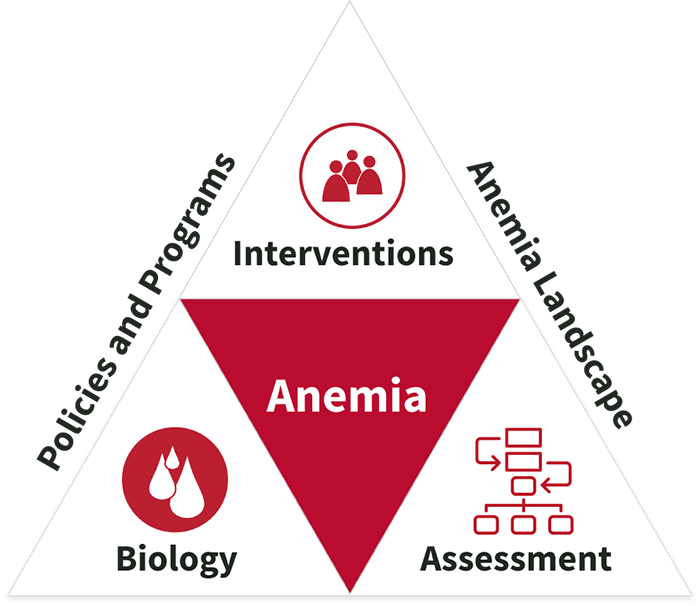Anemia is a public health concern disproportionately affecting young children, pregnant women, and women of reproductive age. The Global Burden of Disease Study estimates that iron deficiency anemia and thalassemia are the leading anemia causes worldwide.
While anemia is prevalent around the world, the underlying causes differ among different populations and regions. A “one size fits all” approach does not exist, and implementation of strategies to reduce anemia depend on the main causes of anemia, and the financial and technical capacity of each country.
We found 93 resource(s)
National Strategy for Anaemia Prevention and Control in Bangladesh
Technical Report published by National Strategy for Anemia Prevention and Control in
This National Strategy aimed to reduce the prevalence of anemia among high-risk groups in Bangladesh by 2015 by 25 percent. The strategy identifies comprehensive interventions aimed at high-risk groups, in particular infants and young children, adolescent girls, newly wed women, and pregnant and breastfeeding women.
Nepal: National Anemia Control Strategy for Women and Children
Technical Report published by Government of Nepal, Ministry of Health and Population in
This report presents an outline of the strategy designed to control anemia in Nepal.
Four Malaria Success Stories: How Malaria Burden was Successfully Reduced in Brazil, Eritrea, India and Vietnam
Technical Report published by American Journal of Tropical Medicine and Hygiene in
This report documents the malaria control efforts of Brazil, Eritrea, India, and Vietnam and discusses key factors in the success of these programs, including epidemiological, technical, programmatic, partnership, and financial aspects.
Qualitative Research Instrument on Perceptions of Anemia and Use of Iron Tablets—The Indramayu Project, Indonesia
Technical Report published by The World Bank in
This research instrument, which was developed by the Manoff Group for the USAID-funded MotherCare Project, was used in formative research for the Indramayu Project. One component of research tested ways to improve the existing iron supplementation program for pregnant women in this Indonesian region. The results were used to develop messages for…
MotherCare Indonesia Resources
Information, Education and Communication Materials published by MotherCare in
The MotherCare Project, a USAID-funded program, was aimed at preventing maternal and perinatal mortality and morbidity. The project included activities that engaged in a series of applied research initiatives and offered short-term technical and training support. Examples of resources developed for use in Indonesia include pill reminders and other…
Pagination
- First page
- Previous page
- …
- 4
- 5
- 6
- 7
- 8
- 9
- 10
- 11
- 12



